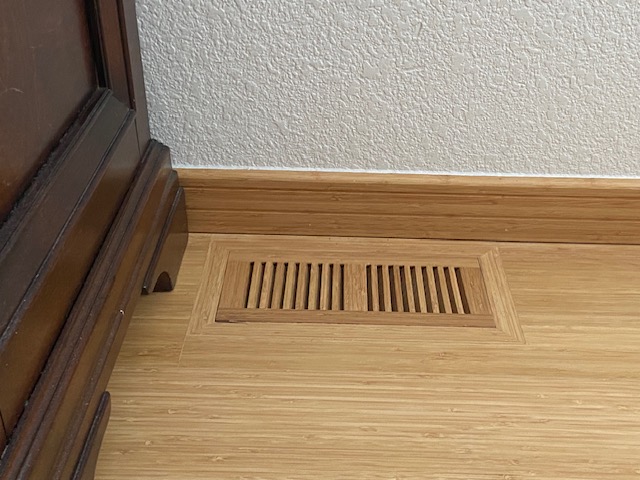When Buying Eco-Friendly Bamboo Flooring

Bamboo flooring has gained popularity as an eco-friendly alternative to traditional hardwood flooring. It is renewable, durable, and stylish, making it an excellent choice for homeowners who prioritize sustainability. However, not all bamboo flooring products are created equal. To ensure that you are purchasing truly eco-friendly bamboo flooring, it is crucial to look for specific certifications that guarantee sustainability, safety, and ethical sourcing. This guide explores the most important certifications to consider before making your purchase.
1. Forest Stewardship Council (FSC) Certification
The Forest Stewardship Council (FSC) is one of the most reputable organizations for certifying sustainable forest products, including bamboo. An FSC certification ensures that the bamboo used in your flooring comes from responsibly managed forests that promote environmental conservation, protect biodiversity, and uphold fair labor practices.
Why It Matters:
- Ensures the bamboo is harvested sustainably without deforestation
- Supports responsible land management and biodiversity conservation
- Promotes fair wages and ethical labor practices
When purchasing bamboo flooring, look for products labeled FSC 100% or FSC Mix, as they meet the strict standards of responsible sourcing.
2. FloorScore Certification
Indoor air quality is an essential factor when choosing flooring materials, as some products can emit volatile organic compounds (VOCs) that contribute to poor indoor air quality. FloorScore certification, developed by the Resilient Floor Covering Institute (RFCI), ensures that bamboo flooring meets strict standards for low chemical emissions.
Why It Matters:
- Reduces exposure to harmful chemicals like formaldehyde
- Ensures compliance with indoor air quality standards set by the Environmental Protection Agency (EPA) and California’s Section 01350
- Contributes to a healthier living environment, especially for children and pets
By choosing FloorScore-certified bamboo flooring, you can minimize indoor air pollution and promote better respiratory health for your household.
3. GREENGUARD or GREENGUARD Gold Certification
Similar to FloorScore, GREENGUARD and GREENGUARD Gold certifications focus on indoor air quality. GREENGUARD certification is awarded to products that meet rigorous standards for low chemical emissions, while GREENGUARD Gold certification has even stricter requirements, making it ideal for homes with children and sensitive individuals.
Why It Matters:
- Guarantees minimal emissions of toxic chemicals
- Helps maintain a clean indoor air environment
- Ideal for schools, healthcare facilities, and homes with young children
Look for bamboo flooring with a GREENGUARD Gold label for the highest level of safety in terms of air quality.
4. Leadership in Energy and Environmental Design (LEED) Certification
LEED is a globally recognized green building certification system developed by the U.S. Green Building Council (USGBC). While LEED does not certify individual flooring products, bamboo flooring that meets FSC, FloorScore, or GREENGUARD standards can contribute to LEED points for your home or building project.
Why It Matters:
- Enhances the sustainability rating of your home or commercial space
- Helps qualify for tax incentives and rebates for green buildings
- Supports energy-efficient and environmentally responsible construction practices
If you are working on a LEED-certified project, choosing bamboo flooring with multiple eco-certifications can contribute to earning points toward your building’s overall sustainability score.
5. ISO 9001 and ISO 14001 Certifications
ISO (International Organization for Standardization) certifications indicate high manufacturing and environmental management standards. ISO 9001 focuses on quality management, ensuring that the flooring meets strict durability and performance requirements, while ISO 14001 emphasizes environmental responsibility in the production process.
Why It Matters:
- Ensures high product quality and longevity
- Guarantees eco-friendly manufacturing practices
- Reduces waste and energy consumption in production
Flooring brands with these certifications demonstrate a commitment to quality assurance and sustainability. When searching for high-quality bamboo flooring, brands like KevinFrancisDesign often meet rigorous standards for both sustainability and durability.
6. CE Marking
For those purchasing bamboo flooring in Europe, the CE marking is an essential certification that signifies compliance with European health, safety, and environmental protection standards. It ensures that the flooring meets the necessary regulations for sustainability and quality control.
Why It Matters:
- Confirms compliance with European safety and environmental laws
- Assures that the product has undergone rigorous testing
- Indicates responsible manufacturing and sustainability standards
When buying bamboo flooring from European suppliers, always check for the CE marking to ensure quality and safety compliance.

7. The Lacey Act Compliance
The Lacey Act is a U.S. law that prohibits the trade of illegally harvested wood and plant products, including bamboo. Bamboo flooring that complies with the Lacey Act ensures that the material has been legally sourced without contributing to deforestation or illegal logging practices.
Why It Matters:
- Prevents illegal and unsustainable harvesting of bamboo
- Supports ethical sourcing and supply chain transparency
- Helps protect endangered ecosystems from exploitation
Manufacturers who comply with the Lacey Act demonstrate ethical sourcing practices and a commitment to environmental conservation.
8. CARB Phase 2 Compliance
The California Air Resources Board (CARB) Phase 2 compliance is a regulation that limits formaldehyde emissions from composite wood products. Bamboo flooring that meets CARB Phase 2 standards ensures that it contains minimal formaldehyde, reducing the risk of indoor air pollution.
Why It Matters:
- Protects against harmful formaldehyde exposure
- Meets one of the strictest air quality regulations in the U.S.
- Provides peace of mind for health-conscious homeowners
If you are concerned about chemical emissions from flooring, check for CARB Phase 2 compliance to ensure the safest indoor environment.
Final Thoughts
Choosing eco-friendly bamboo flooring involves more than just picking a product labeled as “green.” By looking for certifications such as FSC, FloorScore, GREENGUARD, LEED compliance, and others, you can ensure that your flooring choice supports sustainability, promotes indoor air quality, and adheres to ethical manufacturing practices. Whether you are remodeling your home or constructing a new space, investing in certified bamboo flooring helps you contribute to a healthier planet while enjoying a durable and stylish floor.
Before making a purchase, always research the certifications of the bamboo flooring brand and verify the authenticity of the labels. By prioritizing certified eco-friendly options, you can make a responsible and informed decision that benefits both your home and the environment.

